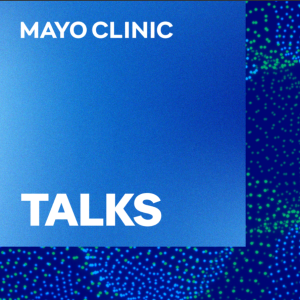
This is one of the papers from our 2017 Annual Conference. Information and the full conference booklet can be found at www.britishphenomenology.org.uk
Phenomenology entered the field of cognitive sciences in the early 90s of the 20th century (Varela 1993). Since then, several proposals for introducing phenomenology to the cognitive sciences have been produced e.g. front-loaded phenomenology (Gallagher 2003), formalization of phenomenological description (Marbach 2010), neurophenomenology (Lutz & Thompson 2003). In my paper, I would like to propose another approach, namely non-reductive theoretical integration with mechanistic explanations.
Mechanistic explanations are applied widely in life sciences especially in biology (e.g. Craver & Derden 2013). However, in recent years there have been attempts at introducing mechanistic thought to cognitive sciences (e.g. Bechtel 2008, Craver 2007) including an attempt to mechanistically explain consciousness (e.g. Oizumi et al. 2014). I will argue that this attempt is doomed to failure due to its phenomenological naivety. However, it can be improved by incorporating a phenomenological approach.
In my paper, firstly, I will discuss the background of practicing phenomenology in the cognitive sciences. Secondly, I will characterize mechanistic explanations and show why the mechanistic naturalization of consciousness will fail if it refuses to incorporate phenomenology. Then, in order to prove that phenomenology can be integrated with mechanistic explanations, I will argue for a new reading of Husserlian phenomenology, namely that it can be read as a kind of functionalism. The main objective of Husserlian phenomenology was to give adequate descriptions of the functions of consciousness. Furthermore, phenomenologically described functions of consciousness are congruent to some extent with a mechanistic approach - they are autonomous, multi-level, and decomposable. Finally, I will argue that phenomenological practice can be inspiring and deliver explananda to researchers working on mechanistic explanation of consciousness.
More Episodes
Belinda Marshal - ‘Being-in-the-Virtual-World’
 2021-06-12
2021-06-12
 399
399
D. R. Koukal - ‘Teaching Phenomenology as a Heuristic Tool in Architectural Design’
 2021-06-05
2021-06-05
 353
353
Sadaf Soloukey - ‘Phenomenological Embodiment in Patients with Spinal Cord Injury Receiving Neural Implants’
 2021-05-29
2021-05-29
 270
270
Michael Fitzgerald - ‘Phenomenological interpretations of patient engagement in research’
 2021-05-22
2021-05-22
 325
325
Lucienne Spencer - ‘The phenomenological impact of hermeneutical injustice’
 2021-05-15
2021-05-15
 410
410
Lewis Coyne - ‘What is Phenomenological Bioethics? A Critical Appraisal of its Aims and Methods’
 2021-05-08
2021-05-08
 296
296
Margaret Steele - ‘Weight-Based Shame as an Affective Determinant of Health’
 2021-05-01
2021-05-01
 308
308
Pablo Andreu - ‘On the Patient's Agency - a Phenomenological Approach to Medical Praxis’
 2021-04-24
2021-04-24
 288
288
Caroline Greenwood Dower - ‘Experiences of Anxiety: Exploring the phenomenon for therapeutic benefit’
 2021-04-17
2021-04-17
 375
375
Joe Smeeton - ‘In search of meanings within child protection social work in the UK’
 2021-04-10
2021-04-10
 280
280
Maja Berseneva - ‘The transformative power of vulnerability’
 2021-04-03
2021-04-03
 365
365
Jan Halák and Petr Kříž - ‘Phenomenological physiotherapy: extending Merleau-Ponty’s interpretation of bodily intentionality’
 2021-03-27
2021-03-27
 318
318
Miriam Ambrosino - ‘Using Feeling: Engaging Aesthetic Experience in Phenomenological Practice’
 2021-03-20
2021-03-20
 318
318
Jamie Murphy - ‘The Angry is Always Right’
 2021-03-13
2021-03-13
 327
327
Natalia Burakowska & Danielle Petherbridge - ‘An Embodied-Cognitive Approach to Dementia’
 2021-03-06
2021-03-06
 332
332
Sophie Loidolt - ‘Order, Experience, and Critique: The Phenomenological Method in Political and Legal Theory’
 2021-02-27
2021-02-27
 517
517
Sophie Loidolt Interviewed by Jessie Stanier & Hannah Berry
 2021-02-26
2021-02-26
 328
328
Shaun Gallagher, interviewed by Hannah Berry & Jessie Stanier
 2020-12-26
2020-12-26
 806
806
Hannah Berry - ‘We Need to Talk About Ted’
 2020-12-20
2020-12-20
 270
270
Nicole Miglio and Jessica Stanier - ‘Painful experience and constitution of the intersubjective self: a critical-phenomenological analysis’
 2020-12-19
2020-12-19
 333
333
Get your brand heard on this podcast
Join Podbean Ads Marketplace and connect with engaged listeners.
Advertise Today
Create your
podcast in
minutes
- Full-featured podcast site
- Unlimited storage and bandwidth
- Comprehensive podcast stats
- Distribute to Apple Podcasts, Spotify, and more
- Make money with your podcast
It is Free
You may also like

Mayo Clinic Talks


The Saad Truth with Dr. Saad


Positive Thinking Mind


The Jordan B. Peterson Podcast


The Mel Robbins Podcast


- Privacy Policy
- Cookie Policy
- Terms of Use
- Consent Preferences
- Copyright © 2015-2024 Podbean.com



 iOS
iOS Android
Android